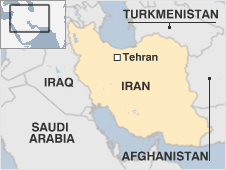MwanaFalsafa1
JF-Expert Member
- Feb 26, 2008
- 5,565
- 836
...And that's what they're doing right?...but they're being told not to demonstrate at all!
Kui they have demonstrated ikafanyika a recount. Ahmadinejad ameshinda kwa kura 11million mpaka Ayatollah akauliza mtu ataibaje kura zote hizo. So at this stage the best place for the people to go and demand there rights is the court. Na hata kama useme the court inaongozwa na Ayatollah you have to ask yourself Ayatollah anaruhusiwa kufanya hivyo kikatiba? Kama ana ruhusiwa then let the man do his job.
